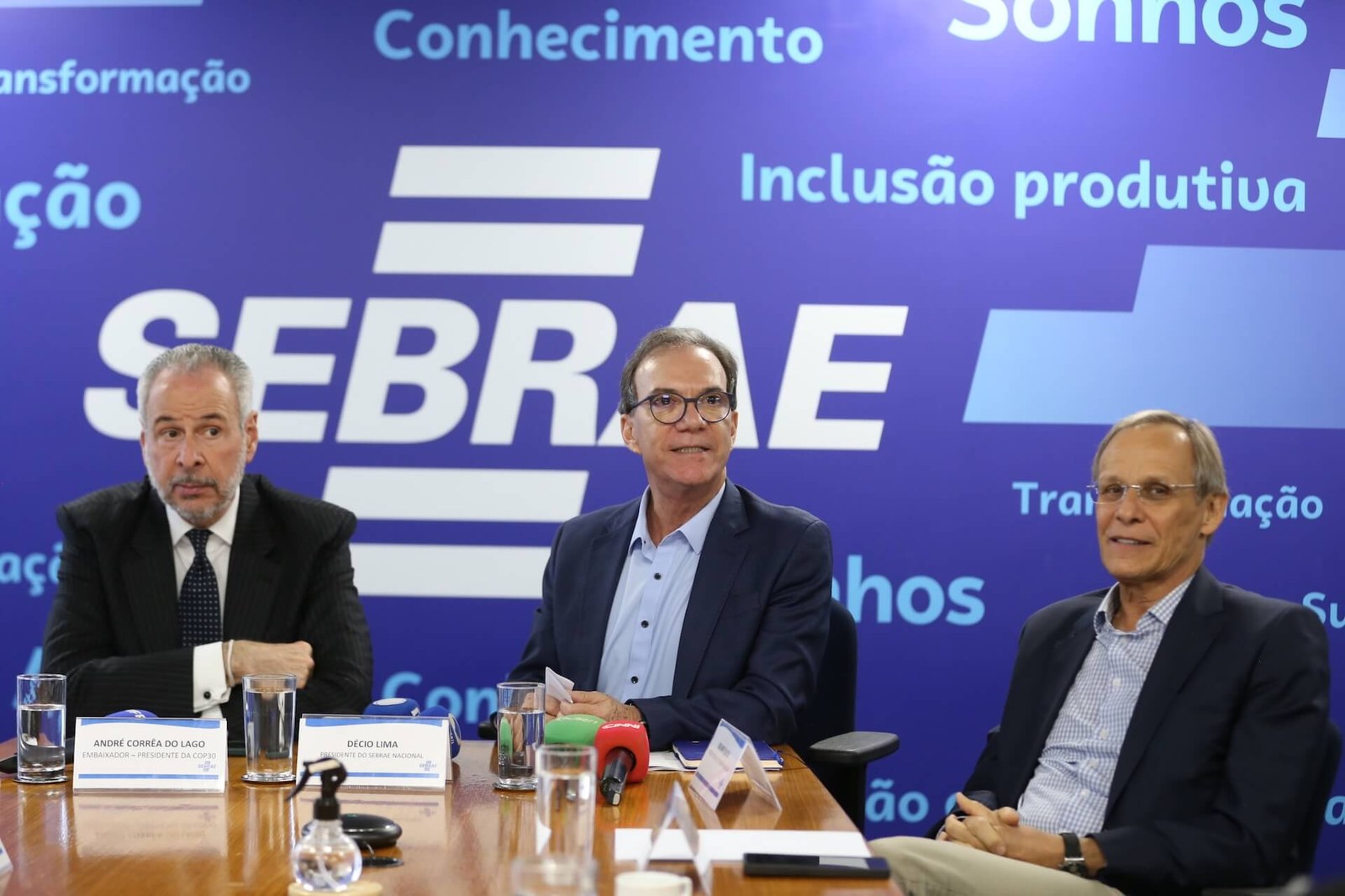COP30 President André Corrêa do Lago acknowledges the contribution of small businesses to the climate agenda
During a visit to Sebrae, the ambassador received proposals from the institution to expand the participation of micro and small businesses in the climate agenda.

By Sebrae Portal, with adaptations
On Thursday, May 15, Ambassador André Corrêa do Lago, COP30 President, toured the Brazilian Micro and Small Business Support Service (Serviço Brasileiro de Apoio às Micro e Pequenas Empresas/Sebrae) headquarters in Brasília. During the visit, the president of Sebrae, Décio Lima, officially outlined the institution's position on the climate agenda, highlighting the main areas of action designed to include micro and small businesses in COP30. Corrêa do Lago stressed that Sebrae’s support will be crucial in showcasing the strategic role of small businesses in the transition to a sustainable economy.
For the first time in the conference's history, COP30 will feature a special area for small business owners called the e-Zone.
"This is an agenda dominating the international discussion. I believe it’s the first time an international agenda was so well-established and structured. It’s an agenda that particularly reflects the image Brasil wants for its future,” said André.
Climate Manifesto
In addition to supporting the implementation of COP30 in Belém, Pará, Sebrae established an ongoing commitment to the climate and sustainability agenda. The organization addresses social and environmental sustainability through small businesses based on five strategic pillars:
- Innovation for a low-carbon economy and bioeconomy;
- Agriculture and food security;
- Energy transition, industrial processes, and productive chains;
- Territorial climate resilience and the circular economy;
- Inclusive, diverse, and women-led entrepreneurship.
Small businesses demonstrate this commitment through three main approaches:
First, literacy—training programs prepare entrepreneurs to adapt to environmental demands. Second is innovation, encouraging small businesses and startups that align with sustainable practices and ESG principles.
Finally, Sebrae strengthens its advocacy role with policymakers at different levels of government to contribute to creating a business environment that favors small businesses capable of promoting economic prosperity, environmental conservation, and social justice.
"The more we talk, the more important doors open, and we will develop those opportunities over time. We’ve seen how much we can accomplish through collective effort, and your extraordinary reach will be a fantastic tool for engaging the entire country in COP,” the Sebrae president emphasized.
English Version: Trad. Bárbara Menezes
Proofreading by Enrique Villamil

